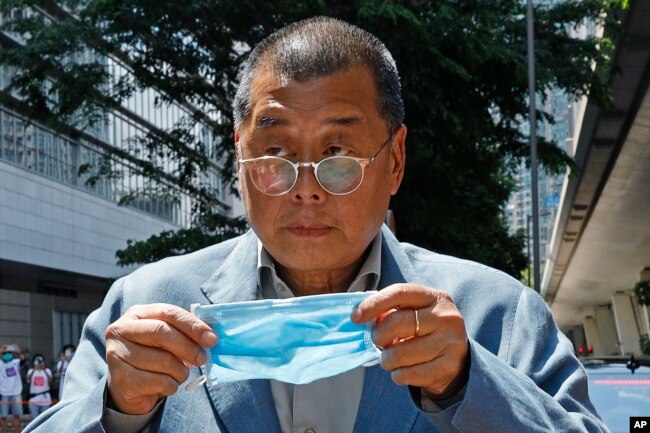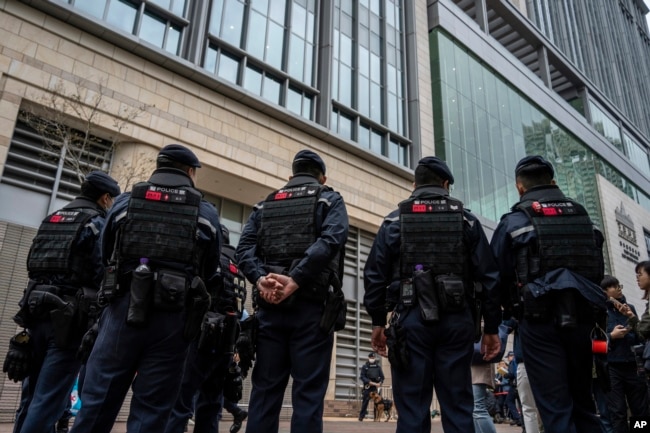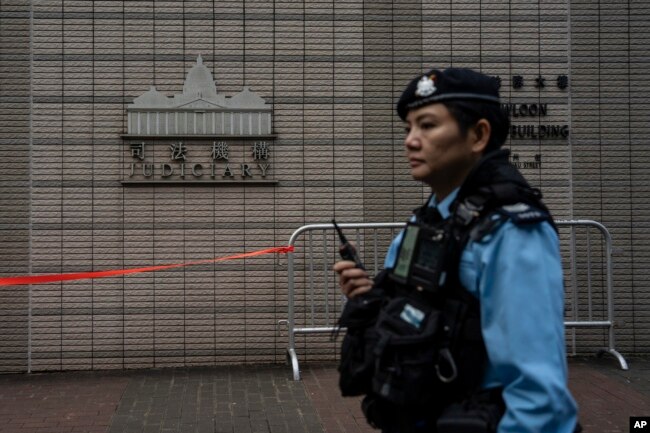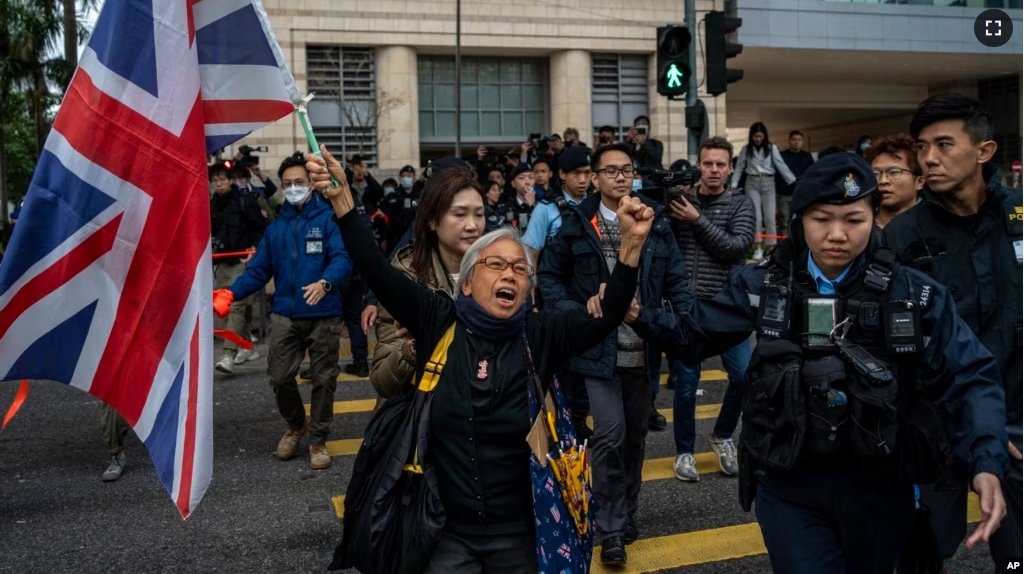Well-known Hong Kong activist and publisher Jimmy Lai went on trial Monday on charges related to the territory’s national security law.
The 76-year-old Lai is the former head of Hong Kong’s Apple Daily newspaper. The publication was long a supporter of pro-democracy activities in the Chinese territory. But Apple Daily was forcibly seized by Hong Kong police in 2021. Top reporters and officials were arrested.
Lai was detained in August 2020 during a wave of arrests linked to Hong Kong’s pro-democracy movement. He was charged with working with foreign forces to endanger the territory’s national security. Lai faces another charge that accuses him of acting with others to publish seditious information.
Hong Kong was once a model for press freedom. Pro-democracy protests were covered freely by local and international reporters. But those same protests led to mainland China’s national security law. That law bans what it calls secession and collusion with foreign forces.

The Chinese government in Beijing passed the national security law in June 2020. Critics say it seeks to silence dissent and crush freedoms promised to Hong Kong when it passed from British control to mainland China in 1997.
Officials in both Hong Kong and Beijing have said the security legislation was needed to restore stability to the territory after repeated large pro-democracy demonstrations.
Rights of the territory’s citizens were to be guaranteed under its Basic Law for 50 years. But in recent years, the Hong Kong government has used the national security law to severely limit free speech, public protests and political opposition. Many leading activists have been arrested, silenced or forced into self-exile.
Lai’s trial is widely seen as a test of press freedom and judicial independence in the Asian financial center. The case is the first in Hong Kong involving charges of foreign collusion. It also targets three companies related to Apple Daily.

Last year, six former Apple Daily executives pleaded guilty to collusion charges. They said in court they had worked with Lai to call for sanctions or other hostile activities against Hong Kong or China. The executives were found guilty and are awaiting sentencing. Some were expected to testify as witnesses against Lai.
Lai has pleaded not guilty to all charges he faces. He is already serving a five-year, nine-month sentence linked to a fraud charge over a property dispute involving Apple Daily.
Lai smiled and waved at supporters when entering the courtroom Monday inside Hong Kong’s West Kowloon Law Court building. A heavy security presence was reported in the area. The territory’s security chief warned last week that any activist attempts to interfere with the trial could be stopped.
Reuters news agency reported that one protester who called for Lai’s release was blocked by police about 100 meters from the courtroom. That protester, 67-year-old Alexandra Wong, said, “The national security law has destroyed the legal foundations of the past.”

Other supporters of Lai lined up overnight in cold temperatures in order to secure a seat in the courtroom.
Western democracies, including the United States, Britain and the European Union, are watching the trial closely to see how it could affect freedoms in the future.
On Sunday, Britain strengthened its position on the situation of Lai – a British citizen – by directly calling on Hong Kong officials to release him.
The U.S. State Department also condemned the charges against Lai and called for his release.
I’m Bryan Lynn.
The Associated Press and Reuters reported this story. Bryan Lynn adapted the reports for VOA Learning English.
____________________________________________
Words in This Story
seditious – adj. things used to persuade others to oppose their government
secession – n. the act of becoming independent and no longer part of a country, area, organization, etc.
collude – v. to act together secretly or illegally in order to deceive or cheat someone
stable – adj. strongly fixed or not likely to move or change
plead – v. a declaration made in court about whether a person is guilty or not of a crime
sanction – n. a punishment for not obeying a rule or law
fraud – n. the crime of getting money by deceiving people
foundation – n. the idea of principle something is based on
